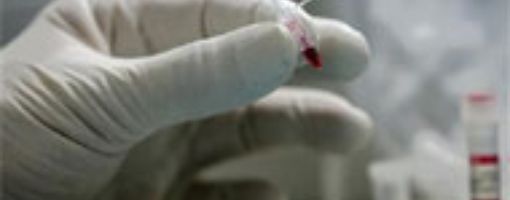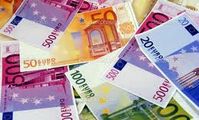Pharmaceuticals

AFTER A PERIOD of quiet, Egypt is now positioned as a major export hub for the regional pharmaceutical market. Although local players once dominated the export game, major multinationals are now moving into the market: In April 2008, Novartis became the first multinational drug producer operating in Egypt to add its local facility to its global supply chain. In addition to making 123 products for local consumption, Novartis Egypt will now supply the company's global operations with treatments for ocular and hormonal conditions.
Today, Egypt has the largest drug-manufacturing base in the Middle East and North Africa (MENA), accounting for 30% of the regional market. With a 75% market share, the private sector dominates pharmaceutical production.
The total value of the Egyptian pharmaceutical market is US$ I billion annually. Local manufacturers of generic drugs supply 52% of the market, while research-based multi-national companies account for the balance, either through "under license"' local manufacturing or direct imports.
Egypt began manufacturing drugs in the 1930s. By the early 1960s, three of the world's top research-based pharmaceutical companies — Pfizer, Hoechst and Swiss Pharma (the latter a consortium of Ciba Geigy, Sandos and Wander) — set up majority-owned joint ventures in Egypt with the full support of the Egyptian government.
Production capacity grew substantially in the 1970s after the introduction of the Open Door economic policy, with a large number of local players launching operations and new international players moving in.
By the start of 2008, a total of 62 companies were operating in the Egyptian pharmaceutical sector, nine of them subsidiaries of research-based pharmaceutical companies and eight of them public-sector entities. Investments in Egypt's pharmaceutical industry currently stand at EGP 26 billion, with the industry employing a total of 39,500 professional staff and production workers.
Large multinationals including GlaxoSmithKline (GSK). Sanofi-Aventis and Novartis are among the top manufacturers of pharmaceuticals in the domestic market. Other leading multinational companies active here include Pfizer, Bristol-Myers Squibb, Servier, Eli Lilly, AstraZeneca and Otsuka.
Foreign participation in the local production of under-license pharmaceuticals is of major importance to both the Egyptian economy and local consumers, supplying a significant portion of domestic demand at a fraction of the import cost.
Locally owned Egyptian companies producing generic products also play a key role in the domestic market with the Egyptian International Pharmaceutical Industries Company (EIPI-CO) being ranked as the leading manufacturer in the domestic market and the largest Arab pharmaceutical company overall. A top company on the Cairo and Alexandria Stock Exchange (CASE), EIPICO is also one of Egypt's 100 largest exporters.
Pharmaceutical prices in Egypt are based on a cost-plus formula, allowing for a profit margin of 15% on essential drugs, 25% on non-essential drugs and 40% or more on over-the-counter products. The formula, managed by the Ministry of Health and Population, guarantees positive returns for all companies operating in Egypt.
The Outlook
Global and national research analysts alike agree the outlook for the Egyptian pharmaceutical industry is very positive: The 2007 Business Monitor International (BMI) report on the sector forecasted that pharmaceutical expenditure in Egypt would top US$ 1.69 billion by 2012, up 76% from US$ 960 million in 2006.
Rapid population growth and expansion in healthcare coverage and expenditures are key growth drivers, as are an increasing awareness of health issues and the modernization of the healthcare industry.
The New Multinationals
Novartis isn't alone in its resurgent interest in using Egypt as a regional production base. In 2007, global pharmaceutical player AstraZeneca began production from its new state-of-the-art US$ 40 million manufacturing plant in Egypt. The plant's three production lines can produce up to 250 million tablets per year and have the potential to expand to 400 million. Although initial production will supply the local market, the company plans to use Egypt as a regional export hub in the f u-jre.
In moving into Egypt, AstraZeneca, which had US$ 18.8 billion in global sales last year, noted that "the environment in Egypt is becoming sufficiently robust to make a financial commitment through the creation of our own company here."
AstraZeneca's executive vice-president for global sales and marketing noted at the time that the enactment of Egypt's Intellectual Property Rights Law No. 82 of 2002in conformity with commitments made under the framework of the World Trade Organization's TRIPS (Trade Related Intellectual Property Rights) was a major factor in his company's decision.
That's why he said, "As part of the company's regional expansion strategy, AstraZeneca has identified Egypt as a key emerging market for further development along with countries including China and Mexico."
Your Rating:
Overall rating: 3.300
Totally voted: 10
Comments
Weather in:
Exchange Rates
-
IMF loan expected next month
Apr 22, 2013, rating: 3.000, 3 votes Egypt may secure an International Monetary Fund loan agreement in about amonth, state news agency MENA reported, quoting "informed" sources ...
Egypt may secure an International Monetary Fund loan agreement in about amonth, state news agency MENA reported, quoting "informed" sources ...
-
Egypt received 11 million tourists in 2012 and aims to boost that number to 14 million in 2013.
Jan 22, 2013, rating: 3.000, 2 votes
Egypt received 11 million tourists in 2012 and aims to boost that number to 14 million in 2013.
-
Egypt limits travelers leaving country to US$10,000 in cash
Dec 26, 2012, rating: 3.250, 4 votes Egypt has banned travelers from carrying more than US$10,000 in foreigncurrency cash in or out of the country ...
Egypt has banned travelers from carrying more than US$10,000 in foreigncurrency cash in or out of the country ...
-
National Coalition on Climate Change for Egypt is born
Nov 30, 2012, rating: 5.000, 1 votes The global COP18 conference on climate change opens in Doha Monday.About 17,000 participants from all over the world ...
The global COP18 conference on climate change opens in Doha Monday.About 17,000 participants from all over the world ...
-
Egyptian family's average annual income is LE25,000, agency reports.
Nov 29, 2012, rating: 5.000, 1 votes The average annual Egyptian household income during 2010-2011 wasLE25,353, according to the Central Agency for Public Mobilization andStatistics.
The average annual Egyptian household income during 2010-2011 wasLE25,353, according to the Central Agency for Public Mobilization andStatistics.
-
Judgment for sexual harassment
Nov 14, 2012, rating: 3.600, 5 votes A man was sentenced to two years in prison and fined LE 2,000 for sexually harassing a woman, an ...
A man was sentenced to two years in prison and fined LE 2,000 for sexually harassing a woman, an ...








